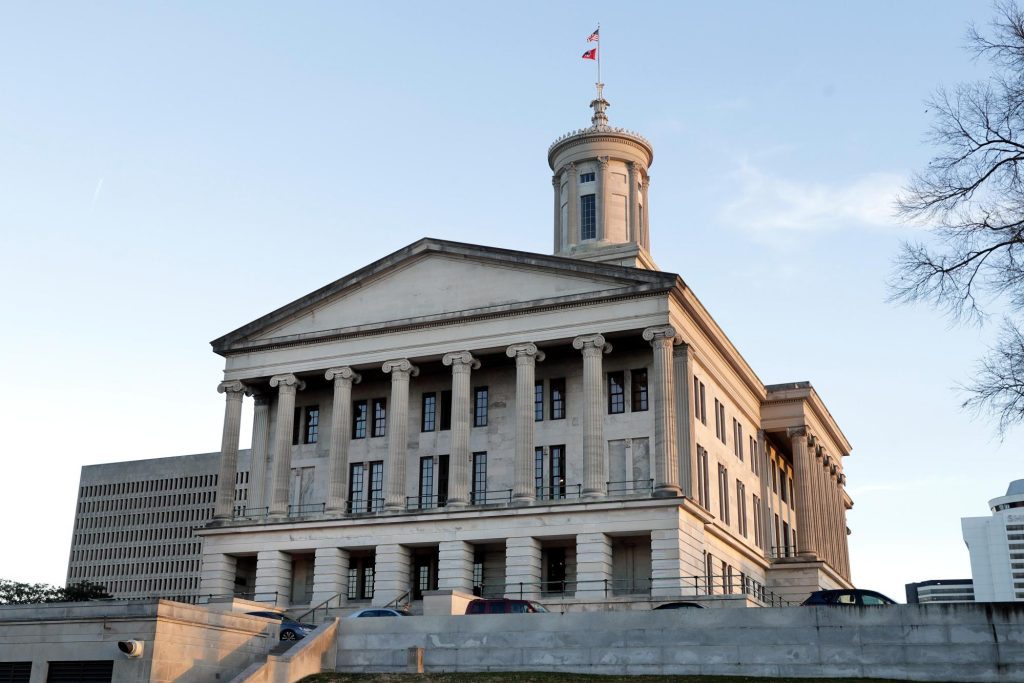By KIMBERLEE KRUESI and JONATHAN MATTISE (Associated Press)
NASHVILLE, Tenn. (AP) — Tennessee is set to make it necessary for public school students to view a video on fetal growth created by an anti-abortion group, or a similar alternative, under a bill that is on its way to Republican Gov. Bill Lee’s approval.
The GOP-dominated Senate passed the bill Thursday, with the five Democrats present and one Republican voting against it.
The Senate rejected several Democratic proposals: to allow parents to exempt their children from watching the video; to allow school districts to decide whether to show it; to include a disclaimer that it’s scientifically inaccurate political propaganda; and to permit schools to teach comprehensive sex education.
Democratic Sen. Heidi Campbell criticized the video, saying, “This cutesy, shiny, pink video is offensively childish and it diminishes the complexity of reproductive health. It’s insulting to women and it’s insulting to the medical profession.”
Republican Sen. Janice Bowling, who sponsored the bill, argued that the video is accurate.
“It does show conception and it’s an AI-type of film, but it’s medically correct,” Bowling said. “And it shows the moment when the sperm unites with the egg, and that is the beginning of life.”
The bill is similar to proposals in Iowa, Kentucky, Missouri, and West Virginia this year, all supported by Live Action, an anti-abortion organization. North Dakota was the first state to adopt the idea last year.
Live Action has been encouraging states to use their three-minute animation in classrooms, which they say helps visualize fetal development in the womb. The fetus in the video is called Baby Olivia.
The video illustrates the process of fertilization, implantation, and development of an embryo and fetus throughout a pregnancy. A voiceover also introduces viewers to Olivia as an example of a fully developed baby in the womb. Olivia’s mouth and eyes open and close, and her hands move.
“Though she has yet to greet the outside world, she has already completed an amazing journey,” the narrator says.
However, the video has been criticized by some educators and physicians, who argue it is deceptive and inappropriate for a young audience. Additionally, the American College of Obstetricians and Gynecologists, a professional organization with over 60,000 members, has stated that the video is anti-abortion misinformation “designed to manipulate the emotions of viewers.”
Live Action says the video was made with input from doctors.
Under the Tennessee legislation, public schools would have the choice to show a different video, but the requirements are strict: it must be at least three minutes long and feature “a high-quality, computer-generated animation or high-definition ultrasound” depicting “the development of the brain, heart, sex organs, and other vital organs in early fetal development.” It’s unclear how many other organizations offer something similar.
The bill requires the video to be included in a school’s family life curriculum.
Democrats stated that making the video necessary goes against Republicans’ assertion that they prioritize parental choice in education.
Democratic Sen. Charlane Oliver mentioned that many members of the legislative body talk about school and parent choice, but it seems to only be convenient when it fits a certain political ideology.
While Lee has not publicly given an opinion on the legislation, it’s likely that he will approve it. The governor has never rejected a bill since taking office in 2019 and has repeatedly emphasized his opposition to abortion. Under his leadership, Lee implemented a comprehensive abortion ban that took effect shortly after the U.S. Supreme Court overturned Roe v. Wade in 2022 and approved sending more tax dollars to anti-abortion organizations, often known as crisis pregnancy centers.
The Baby Olivia legislation has not made as much progress in other states as in Tennessee. West Virginia’s Senate approved the measure in February, which specifically applied to eighth and twelfth graders, but the Legislature adjourned before it could clear the House of Delegates.
In Iowa, lawmakers are discussing whether to remove specific references to the Baby Olivia video and instead require any video showing the “humanity of the unborn child.” Meanwhile, the bill has not progressed in Kentucky and Missouri.









